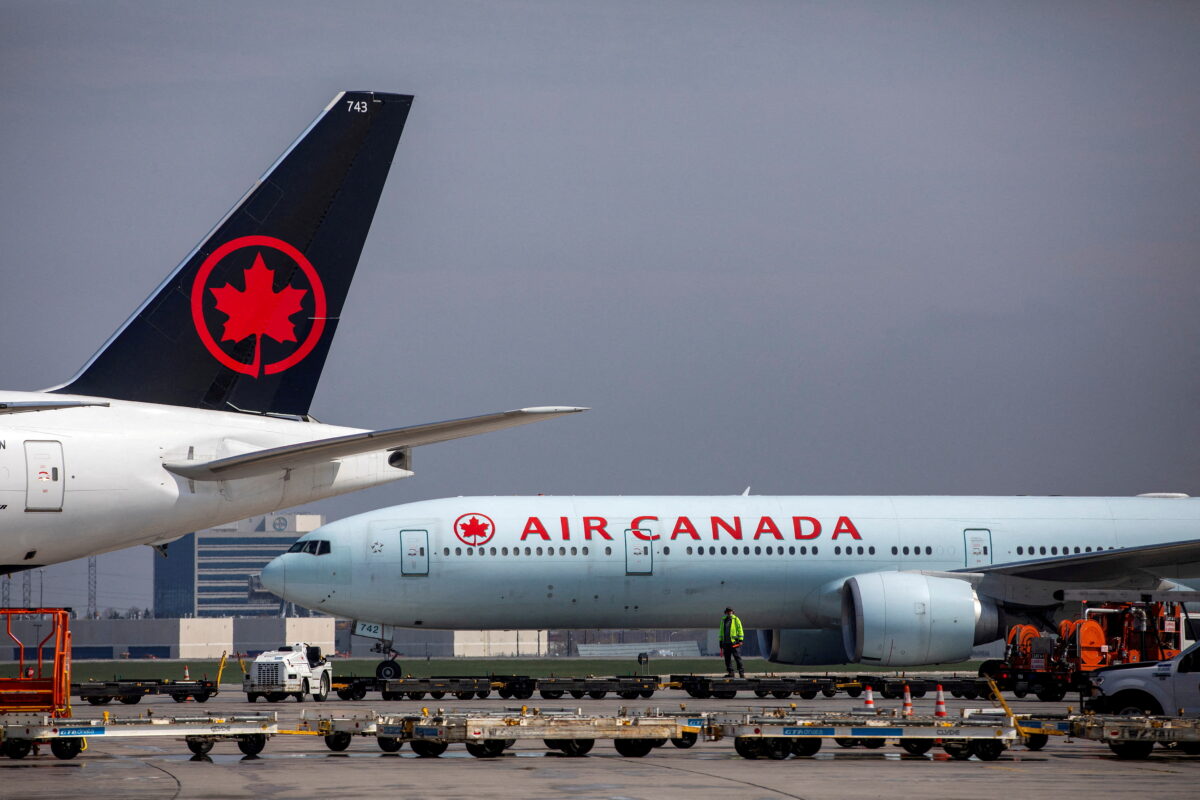
FILE PHOTO: Air Canada planes are parked at Toronto Pearson Airport in Mississauga, Ontario, Canada April 28, 2021. REUTERS/Carlos Osorio
Transport Canada says it’s paying close attention to a significant drop in the number of airplane pilots deemed medically unfit to fly in recent years.
More medically fit-to-fly pilot would typically be a good thing, but the lower numbers in this case could relate to other factors.
According to data tabled in the House of Commons on May 22 by the department, the number of pilots deemed unfit started dropping significantly in 2021. That was after Transport Canada allowed pilots to be medically screened remotely to obtain their aviation medical certificate renewals.
The measure was in response to COVID-19, but with the virus and public health restrictions now in the rearview mirror, Transport Canada has not rescinded the policy and has instead extended it until 2025.
Data provided by Transport Canada shows that 428 pilots were deemed medically unfit in 2018 and 498 in 2019. Based on the ratio of licence applicants, that represented 0.93 percent of pilots in 2018 and 1.09 percent in 2019.
The remote medical assessment policy came into force in May 2020, and there was no notable change that year, with 0.95 percent of pilots being deemed unfit.
The ratio started falling drastically in 2021 with 0.64 percent of pilots being deemed unfit, and fell further in 2022 (0.41 percent) and 2023 (0.29 percent).
Comparing data from 2019 to 2023, there has been a 74 percent drop in the ratio of pilots being deemed unfit.
Asked to shed light on the matter, Transport Canada responded that it “prioritizes safety above all else when delivering licenses and when assessing medical fitness for pilots.”
“The mandate of Transport Canada’s Civil Aviation Medicine Branch is to ensure aircrew and air traffic controllers are medically fit, while closing gaps in scientific knowledge of civil aviation medicine,” Ms. Liu said.
The data on pilots was provided by Transport Canada in response to an order paper question from Conservative MP Arnold Viersen on April 4.
Mr. Viersen asked a wide range of questions on aviation safety, such as the number of medical events that have occurred in Canadian airspace since 2018 and what medical screening changes have occurred for pilots.
Transport Canada did not mention the exemption of in-person medical screening for pilots that was implemented in 2020 and only noted screening questions that were added regarding cannabis use.
The in-person screening exemption was re-issued in March 2023 and extended for two years.
“This was originally granted in relation to the COVID-19 pandemic, to limit face-to-face interactions and reduce the unnecessary exposure of healthy medical certificate holders to potentially hazardous healthcare settings,” says the Transport Canada website.
The department says telemedicine now has benefits beyond the pandemic and offers more flexibility for applicants, such as those in remote areas.
“Aviation personnel, although not basically dishonest, may not volunteer information which may affect their medical certification,” it adds.